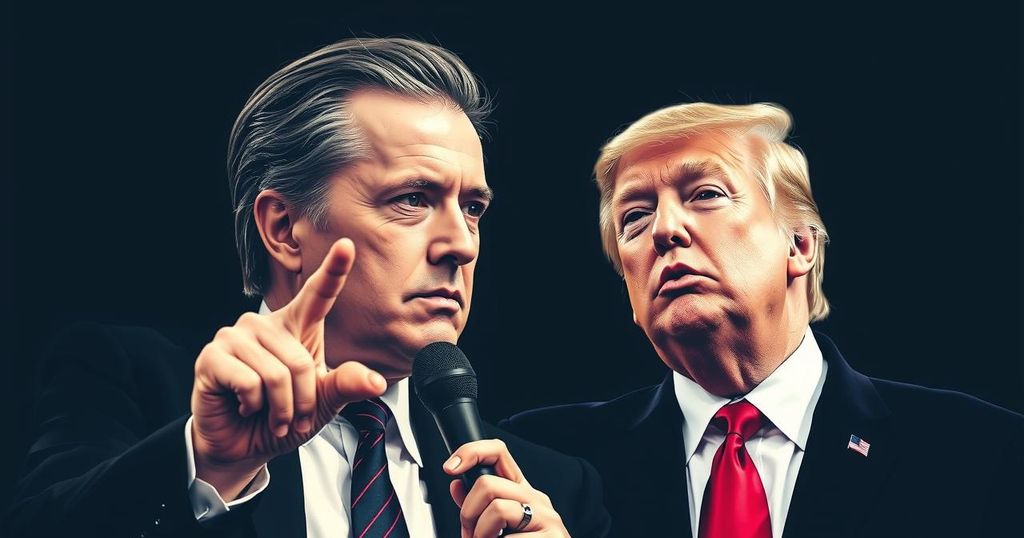Elon Musk’s Financial Tactics in Support of Trump: A Threat to Electoral Integrity
Elon Musk is attempting to support Donald Trump’s election campaign through questionable financial tactics, including giving away $1 million daily to supporters and incentivizing signatures from voters in swing states. Critics warn this veers into illegal vote-buying territory. Musk’s influence reflects a disturbing trend of financial power in politics, amplified by the Citizens United ruling, where wealthy donors increasingly dictate campaign dynamics. His ultimate goals seem to revolve around expanding his economic interests and political clout, raising concerns about the integrity of American democracy.
Elon Musk has embarked on an audacious campaign to financially support Donald Trump’s bid to regain the presidency, employing tactics that some experts deem illegal and potentially detrimental to the integrity of the electoral process. As the U.S. elections approach, Musk’s “America Pac” has initiated a giveaway of $1 million daily to randomly selected individuals who endorse his petition advocating for free speech and gun rights. This initiative follows his previous attempts to incentivize voters in key swing states, offering increasing sums for their signatures—initially $47 and later $100 for voters in Pennsylvania—raising alarm about the ethical implications of such actions. Musk’s efforts do not stop at direct financial incentives; they also include strategic misinformation campaigns targeting voters with contradictory narratives about Vice President Kamala Harris’s foreign policies. These tactics reflect a disturbing trend of financial influence in American politics, exacerbated by the 2010 Supreme Court’s Citizens United ruling, which allows for unlimited contributions from corporations and special interest groups to Super PACs. Consequently, over $2.1 billion has been funneled towards the election by the top 50 political donors, predominantly favoring Republican candidates. The question arises: what are Musk’s true intentions? Speculation suggests financial gain and the expansion of his influence within government. Trump’s notion of appointing Musk as “secretary of cost-cutting” hints at a potential role that could see Musk steering significant government contracts to his own companies. This scenario raises concerns regarding the extent to which government resources could be redirected towards Musk’s interests, along with the absurd spectacle of potential policy decisions driven by personal vendettas. It stands to reason that a Trump presidency, underpinned by Musk’s financial ambitions, could lead to unconventional and detrimental governance, characterized by attempts to elevate Musk’s interests above public welfare.
The intersection of finance and politics has intensified in the United States, particularly after the landmark Citizens United ruling, which opened the floodgates for unlimited contributions to Super PACs. This shift has led to a significant increase in the financial power of private individuals and corporations in influencing electoral outcomes. As election dates approach, high-profile billionaires such as Elon Musk have leveraged their wealth to support candidates who align with their interests, often employing controversial and questionable strategies to sway public opinion and voter behavior. Musk’s actions in support of Donald Trump underscore a broader trend of the wealthy seeking to shape political landscapes to their advantage, prompting debates over the ethics of such involvement in democracy.
In conclusion, Elon Musk’s recent attempts to support Donald Trump’s presidential campaign through unconventional financial tactics raise serious ethical concerns about the integrity of the electoral process in the United States. His actions, which include significant cash incentives for endorsing a petition and targeted misinformation campaigns, highlight the growing influence of money in politics. As this trend continues, it poses a risk of prioritizing billionaire interests over democratic values, underscoring the need for vigilant scrutiny of the intersection between wealth and political power.
Original Source: www.theguardian.com




Post Comment